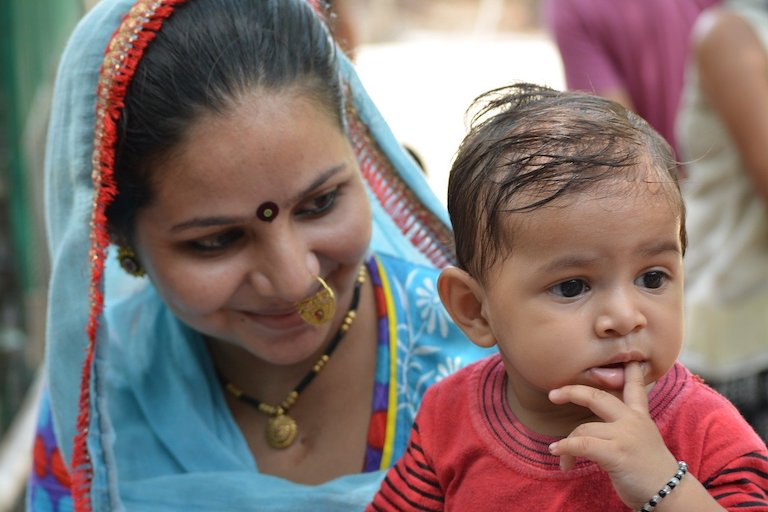New Delhi, India: The India Nutrition Collaborative today announced the launch of the Poshan Innovation Platform (PIP), in partnership with the office of the Principal Scientific Advisor to the Government of India to strengthen nutrition delivery services with the aim to improve the nutritional status of mothers and children under five-years of age, at the last mile. The platform will provide a collaborative space for educational institutions, start-ups, university incubators, civil society networks and businesses in India to present ground breaking innovations with proof of concept. It will facilitate mentorship, seed funding and investment opportunities to foster successful scaling of these innovations.
The PIP is being hosted by The Catalyst 2030, India Nutrition Collaborative, a new and growing group of organisations and individuals from academia, businesses, government, and civil society, working in the area of Good Health and Wellbeing, and Zero Hunger. Supported by The Office of the Principal Scientific Adviser to the Govt. of India as the Knowledge Partner of the platform and other INC member organizations like Vitamin Angels, JHPIEGO, Transform Rural India (TRI), UNICEF India and eminent public health nutrition professionals like Dr. Rajan Shankar and Dr. Smriti Pahwa the platform calls for innovations from across the country that have the potential to transform the nutritional status of nutritionally vulnerable mothers and under-five children at the last mile for long-term impact. Focussing on reducing the levels of stunting and wasting among young children, and anaemia in women of reproductive age group, the platform will call for innovations in areas of gender equity, digital equity, market equity and promoting nutrition-seeking behaviour. Such multidimensional measures will help in the battle to end intergenerational poverty and bring more equal opportunities to rural Indians.
A jury comprising of individuals from across sectors will select eight innovations from the pool of shortlisted innovations. Innovations that have a proof of concept with implementation and evidence around sustainability, impact and last-mile delivery will be eligible for financial support and mentoring through the PIP Grant Challenge Trust Fund amounting to INR 3 crores. The innovations which are not eligible for the PIP Grant Challenge will be provided mentorship and peer learning programs through the Poshan Innovators Network (PIN) to help fine tune them for the next cycle.
A diverse panel of mentors and partners comprising key leaders from academia, government, media and communications, the private sector and NGOs, will provide training to refine the winning innovations. After the completion of this refinement process, collaborative efforts will be initiated with grassroot organizations, Ministries and State governments to pilot the successful innovations at the district, state, and national levels and later integrated into nutrition interventions at the ground level. Furthermore, the selected innovations will be scaled up through long-term funding from the corporate sector at the end of the 24 month cycle.
Speaking at the event, Dr. Sapna Poti, Director of Strategic Alliances at the Office of the Principal Scientific Adviser to the Government of India, expressed, “The Poshan Innovation Platform is a unique initiative focused on mentoring and supporting innovators with distinctive and scalable approaches through a robust network of partners and allies. Poshan Innovation Platform is partnering with the Office of PSA, GoI through its Manthan Platform, providing necessary expertise with the belief that the PIP will create opportunities to implement scalable innovations addressing maternal and child health in the country. The Poshan Innovation Platform will collaborate and be featured on Manthan under the nutrition section, and we anticipate that the platform will meaningfully complement existing government initiatives aimed at improving the nutritional status of women and children in India.”
Dr. Rajan Shankar, Chief Advisor and Mentor for the PIP and one of India’s leading public health experts, said, “India has made significant progress in health and development indicators, improving the lives of millions. However, the last-mile improvement of service delivery requires a whole of society approach. This unique initiative aims to facilitate collaborations among different stakeholders, including government, community service organizations, and the private sector. The goal is to leverage and enable India’s vast tech talent and capability pool with the objective to address some of the persisting challenges hindering progress toward a malnutrition-free India.”
Dr. Smriti Pahwa, Chair, India Nutrition Collaborative, said, “In order to combat undernutrition in the country, there is an urgent need to address the problem of ‘ineffective delivery and uptake’ by employing a human-centric approach, leveraging technology and learning from the successes of other sectors. By creating a conducive environment for innovations with proof of concept to thrive, the Poshan Innovation Platform can prove successful in building nutritional equity in the country.PIP could be a pathway to assess and missed opportunities for impact in maternal child health space.”
The PIP was launched at the Bangalore Design Week, co-organized by the Government of Karnataka and the SDG Action Labs. The Catalyst 2030, India Nutrition Collaborative aims to mobilize intellectual, technological, social, and creative human capital to address the problem of nutrition inequity in the country. It focusses on coming together ‘to prepare the ground’ to overcome the issue of malnutrition in the country, through platforms, deliberations, solution-circles and forums, whatever it takes to build a system that allows solution mindset.


